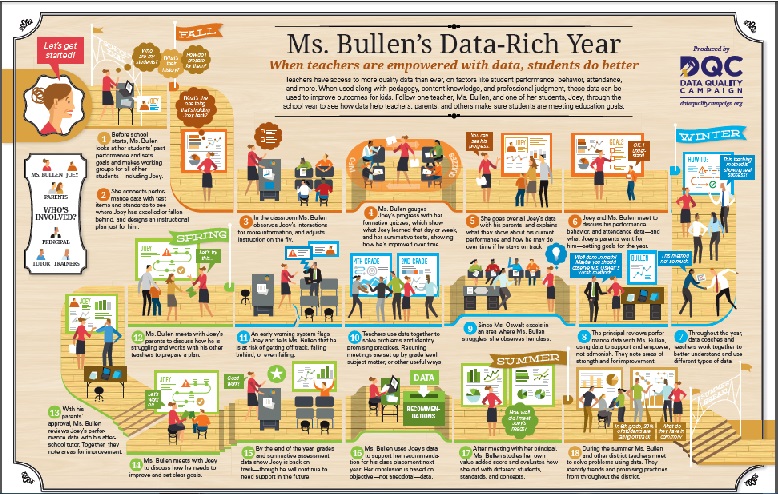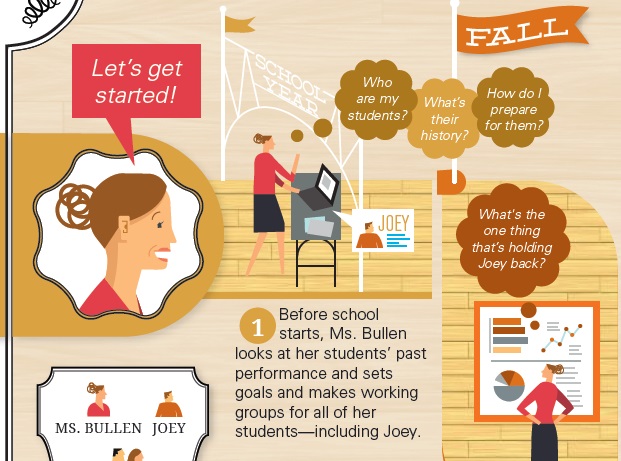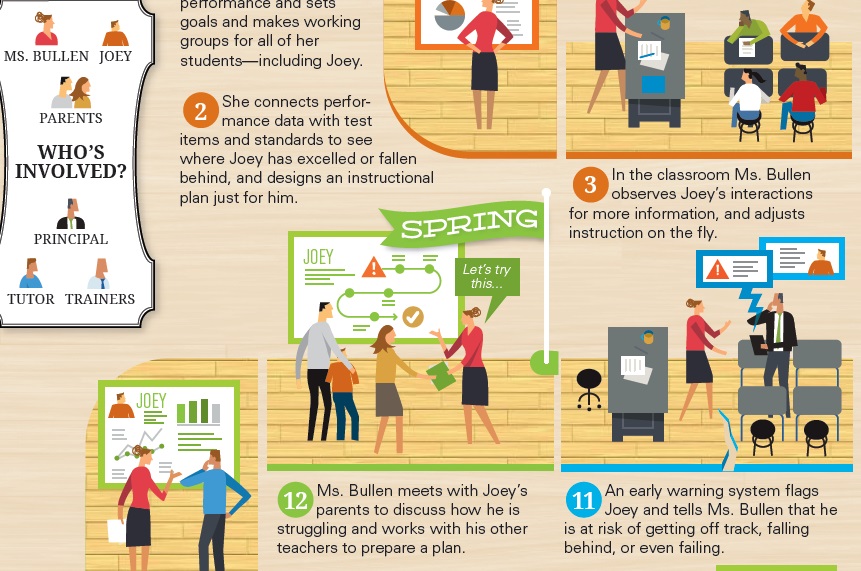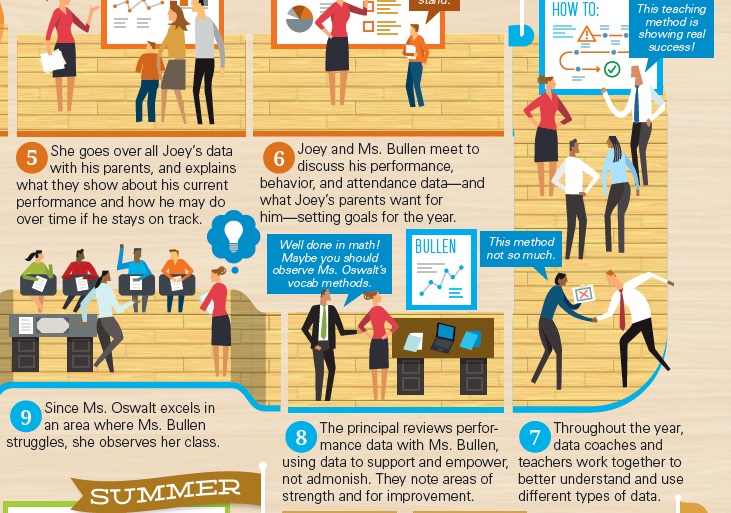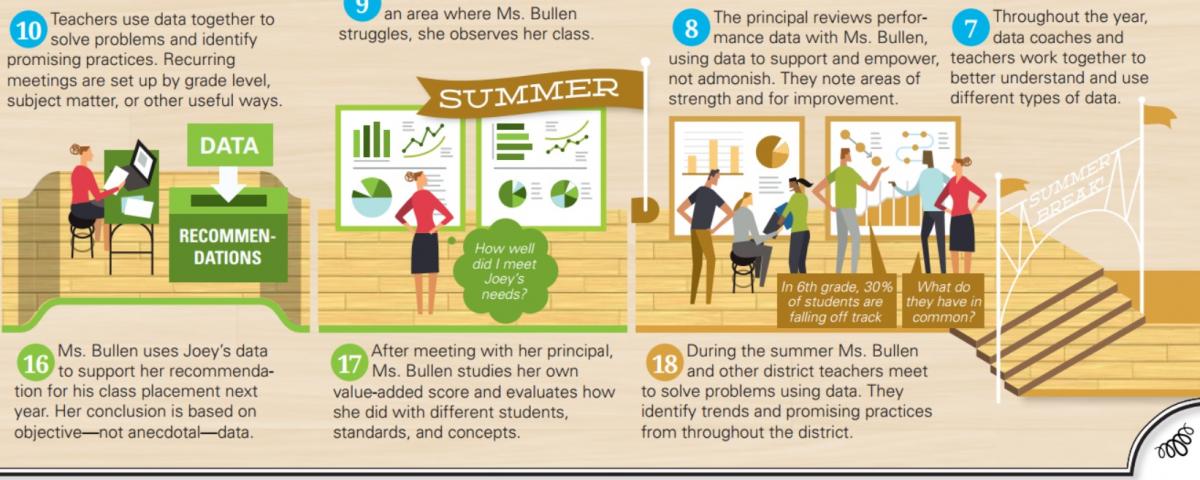Note: After losing most of this blog and website just before Halloween of this year, I’ve been rebuilding it from salvaged text cut’n’paste into long documents with some pretty strange formatting. Since I’m having to redo any posts I wish to retain anyway, most are getting fresh edits – or at least being shortened a bit. Many are simply not being reposted.
This was going to be one of those.
But this week two First Grade teachers in Tulsa, Oklahoma, took a principled stand against subjecting their students to any more abuse in the name of standardized testing. Their story and the letter they sent home to parents made waves, and they are likely to be fired for doing what’s best for their students.
I couldn’t help but remember a few months ago when I did the opposite, and caved in the face of almost no pressure. I’m reposting this as a confession in contrast to their courage and their conviction. My other rebuilt posts retain their original posting dates for logistical reasons; this one will not. It was originally posted April 16th, 2014.
Roster Vilification
Right now I hate my job.
I like my co-workers, my administrators – even the nice lady from the ESC who had to talk us through Roster Verification this morning. I may hate myself a little, now that I think of it.
 I don’t even teach a tested subject this year. State law as it stands this week (it’s been rather flaky lately, so who knows what 30 days from now might bring?) says I can pretty much make up my own standards for VAM in my department, while my friends down in the Math & Science halls are tied to tests already taken and cut scores which are determined by random rolls of leftover D&D dice sometime in July.
I don’t even teach a tested subject this year. State law as it stands this week (it’s been rather flaky lately, so who knows what 30 days from now might bring?) says I can pretty much make up my own standards for VAM in my department, while my friends down in the Math & Science halls are tied to tests already taken and cut scores which are determined by random rolls of leftover D&D dice sometime in July.
What do I care, seriously? What difference does it make what bureaucracy I agree to, just to move things along? Why am I blogging this only so I don’t write my 2-week letter – THIS time of year of all times?
I just looked through a list of 168 students and confirmed with God as my witness that I am 100% responsible for everything they’ve ever done or will do, good or bad. Kids I haven’t seen in months. Kids who’ve been through weird circumstances, or who haven’t but have just shut down anyway. I’m also taken credit for kids I don’t think I’ve really taught much to – they’re just ‘those kids’ who show up and do most of what I ask.
They may have 102% in my class, but I don’t think they’re leaving with a love of learning so much as reinforced cynicism about just playing along with the system.
Which is what I just did.
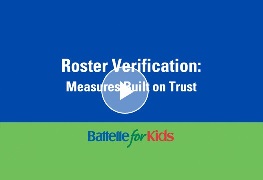 This is wrong – this electronic tying of each teacher to each kid based solely on who’s on your grade book at a given point. It doesn’t matter that I have upper middle class white Methodists from two-parent families who only miss school for golf or family vacations to Europe, while the guy next to me has kids suspended so often he has more class admit forms than completed assignments.
This is wrong – this electronic tying of each teacher to each kid based solely on who’s on your grade book at a given point. It doesn’t matter that I have upper middle class white Methodists from two-parent families who only miss school for golf or family vacations to Europe, while the guy next to me has kids suspended so often he has more class admit forms than completed assignments.
There’s nothing in the measurement to indicate where a given kid might be mentally, or emotionally, or how often I’ve even had them physically in front of me. I don’t even recognize some of the names I just said were mine.
But I agreed to it all.
I agreed to it all because refusal doesn’t make things difficult for the State – it makes things difficult for my building principal, who I love and respect. It makes things particularly difficult for the nice lady from the ESC who started off so determined not to take my comments personally, but who hasn’t dealt with me often enough to know how unrealistic that was. (She actually did very well until my first effort to submit everything locked up the network – probably at the State’s end – and we had to reboot and start over.)
I agreed they’d been with me in such and such class all year, even though first semester was an entirely different course with a different name and number. I agreed although 140+ kids from various teachers including myself were pulled out of our sections in November and given to the new guy – but I couldn’t remember which ones and didn’t want to try to dig through old records to fix it. I agreed even though it was wrong – wrong mathematically, morally, pedagogically, and emotionally.
I agreed because refusing to cooperate wouldn’t change anything, and would be a huge pain in the ass for people who aren’t actually the ones causing the problem. I agreed because realistically this won’t even affect me that much – I teach Social Studies. No one cares what we do most of the time. We don’t get much support or respect compared to other cores, but we also don’t get called to the same meetings or face the same stress. I’m 47 and tenured, and could probably make the same money doing workshops and PD full time. I agreed because this isn’t really my problem.
 Which is the opposite of what I teach my kids all year. It’s the antithesis of that stuff that helps maintain the thin illusion that anything we’re doing here matters, or has value, or could change anything. “Don’t rock the boat – it won’t help!” That should replace the other posters in my classroom for the last two weeks. Just sit in the back of the damn bus. Just finish the wire transfer from the hidden account. Just ignore the policies that maintain poverty for political gain, or segregation for social stability. Just walk past the problem.
Which is the opposite of what I teach my kids all year. It’s the antithesis of that stuff that helps maintain the thin illusion that anything we’re doing here matters, or has value, or could change anything. “Don’t rock the boat – it won’t help!” That should replace the other posters in my classroom for the last two weeks. Just sit in the back of the damn bus. Just finish the wire transfer from the hidden account. Just ignore the policies that maintain poverty for political gain, or segregation for social stability. Just walk past the problem.
You don’t even have to pull the trigger – just don’t step in front of the gun. You’re not that important – you can’t change something this big with some small, symbolic gesture that’s going to do nothing except make everyone around you have to work harder because you’re an ass. Pick your battles, dude – just click the ‘Submit’ button. This is Oklahoma – what are the chances that whatever policy is going to save us all this week will even be around in a year?
So I went along with it. I did what the instructions said, cynically, but in order to move along – much like my most successful students, now that I think about it. They do it because we tell them to, and that’s how you get an ‘A’. I fight it all year, wrestling for their academic souls, and just gave mine away for a bowl of convenience stew.
None of my kids will know, or care. My co-workers get it, but figure – correctly, no doubt – that I’m overreacting. My bosses might even agree, but can’t come out and say so.
But none of that really matters, because right now I hate my job. I hate my state. I hate the naiveté that’s kept me doing this for so long as I move past my otherwise employable years. I hate the other professions I turned down because I thought I was that f***ing important – a difference maker – a world shaker. I hate how when that little moment of decision came, I did the easy thing because I didn’t think the big thing was even a possibility. I just fed the machine, and it let me go back to class.
 I have students coming in 15 minutes, and we should be discussing what we’ve read so far in The Grapes of Wrath. I’d meant to talk about “Joe Davis’s boy,” who drives the tractor that’s tearing up their land and down their homes, and I’ll ask them whether he’s part of the problem or not.
I have students coming in 15 minutes, and we should be discussing what we’ve read so far in The Grapes of Wrath. I’d meant to talk about “Joe Davis’s boy,” who drives the tractor that’s tearing up their land and down their homes, and I’ll ask them whether he’s part of the problem or not.
They’ll say he is, most of them. And they’re right.
We’ll talk about the ‘monster’ that’s bigger than the people who work for it and in it, and – being young – they’ll take a more defiant stance than the characters in the book are able to at this stage in the story. A better stand than I did today. Eventually, maybe, they’ll learn to just… go along. I can hardly steer them otherwise.
I hate myself today. And I’m sorry.

 Note: After
Note: After  The State of Oklahoma, like many others, is determined to assign numbers and letters to the schools and teachers within its purview. Like the standardized testing of students on which many of these numbers and letters are based, the conviction seems to be that if you just keep pretending to measure things in ridiculously oversimplified ways designed to guarantee widespread failure, you’re “reforming” the system and calling forth a brighter future for all. This is analogous to – actually, never mind the analogy. It’s just stupid.
The State of Oklahoma, like many others, is determined to assign numbers and letters to the schools and teachers within its purview. Like the standardized testing of students on which many of these numbers and letters are based, the conviction seems to be that if you just keep pretending to measure things in ridiculously oversimplified ways designed to guarantee widespread failure, you’re “reforming” the system and calling forth a brighter future for all. This is analogous to – actually, never mind the analogy. It’s just stupid.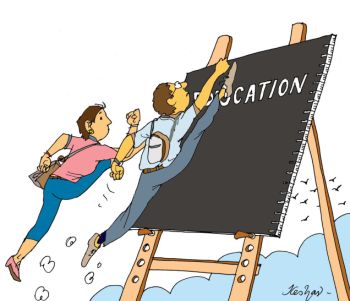 Summative Assessment is the other category. It’s the ‘BIG TEST’ at the end of a unit or a semester. These attempt to document what students “walk away with” in knowledge and skills. The data can identify strengths and weaknesses of individual teachers so we can help each other improve, or help compare classes from year to year. For students it’s generally the finish line, for better or worse – here’s how you did, now off with thee.
Summative Assessment is the other category. It’s the ‘BIG TEST’ at the end of a unit or a semester. These attempt to document what students “walk away with” in knowledge and skills. The data can identify strengths and weaknesses of individual teachers so we can help each other improve, or help compare classes from year to year. For students it’s generally the finish line, for better or worse – here’s how you did, now off with thee.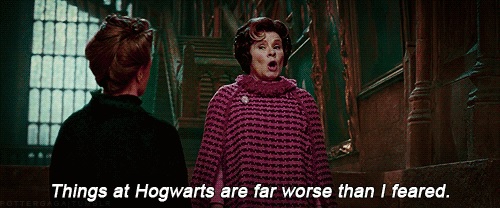 The A-F Report Card given by the State of Oklahoma to its public schools each year does none of the things assessment is supposed to do. It provides no support, and intentionally limits the data it is willing to consider. There are no adjustments on the part of the state based on how well a given school is doing, and no conversation regarding options for improvement. It’s not even measuring most of the things we claim are most valuable to us. It is merely calculated and published, and each year more and more schools are sent to sit in the corner with their ‘dunce’ caps on.
The A-F Report Card given by the State of Oklahoma to its public schools each year does none of the things assessment is supposed to do. It provides no support, and intentionally limits the data it is willing to consider. There are no adjustments on the part of the state based on how well a given school is doing, and no conversation regarding options for improvement. It’s not even measuring most of the things we claim are most valuable to us. It is merely calculated and published, and each year more and more schools are sent to sit in the corner with their ‘dunce’ caps on. You ever across something while browsing online, and wish you hadn’t? I believe it was
You ever across something while browsing online, and wish you hadn’t? I believe it was 